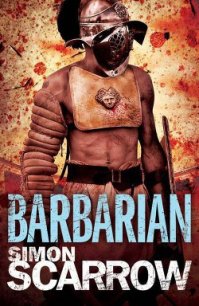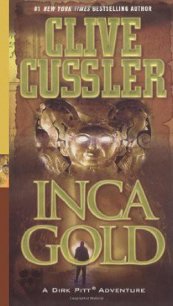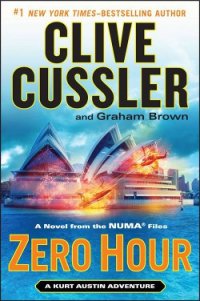Spartan Gold - Cussler Clive (читаем книги онлайн бесплатно без регистрации .txt) 📗
“And has anyone shown any interest in the shard?”
“Some, but nothing serious. So far the consensus is that it’s simply a broken piece of bottle, nothing more.”
“Good. Where are you?”
“New York, waiting to board my flight.”
At this Bondaruk smiled. “Always taking the initiative. I like that.”
“It’s why you pay me,” the Russian answered.
“And if you manage to secure this piece there’ll be a bonus in it for you. How do you plan to approach the man, this antique dealer?”
The Russian paused for a moment and Bondaruk could almost see that familiar cruel smile curling Arkhipov’s lips.
“I find the direct approach is always best, don’t you?”
Arkhipov knew about directness and results, Bondaruk thought. The former Russian Spetsnaz was smart, ruthless, and relentless. In his twelve years in Bondaruk’s employ, Arkhipov had never failed in a mission, no matter how dirty.
“I do,” Bondaruk replied. “I’ll leave you to it, then. Just take care that you’re discreet.”
“I always am.”
Which was true. Many, many of Bondaruk’s enemies had, as far as the authorities could determine, simply vanished from the face of the earth.
“Call me as soon as you have word.”
“I will.”
Bondaruk was about to hang up when another question popped into his head. “Just out of curiosity, Grigoriy, where is this man’s shop? Anywhere close to where we’d predicted?”
“Very close. A small town called Princess Anne.”
CHAPTER 3
SNOW HILL, MARYLAND
Sam Fargo stood at the bottom of the stairs, leaning against the banister, legs crossed at the ankles and arms folded across his chest. Remi was running late as usual, having decided at the last minute her black Donna Karan dress was going to be a bit much for the restaurant and returned to their room to change clothes. Sam checked his watch again; he wasn’t so much worried about their reservation as he was about his empty belly, which had been grumbling loudly ever since they’d gotten back to the B&B.
The lobby of the hostel was quaint almost to a fault, done in Americana shabby chic and decorated with landscape watercolors done by local artists. A fire crackled in the fireplace and over hidden loudspeakers came the faint strains of Celtic folk music.
Sam heard the stairs creak once and looked up in time to see Remi coming down the stairs in a pair of cream Ralph Lauren trousers, a cashmere mock turtleneck, and a russet-colored shawl draped over her shoulders. Her auburn hair was up in a loose ponytail, a few strands touching her delicate neck.
“I’m sorry, have I made us late?” she asked, taking his offered arm as she reached the bottom of the stairs.
Sam stared at her for a few seconds without replying, then cleared his throat. “Looking at you, I fear time has come to a standstill.”
“Oh, shut up.”
The squeeze on Sam’s biceps belied her words and told him that, corny line or not, his compliment had been appreciated.
“Are we walking or driving?” she asked.
“We’ll walk. It’s a beautiful night.”
“Plus you run less risk of another ticket.”
On the way into town Sam had let their rented BMW have a bit too much head, much to the annoyance of the local sheriff, who’d been trying to eat his bologna sandwich lunch behind a roadside billboard.
“That, too,” Sam agreed.
There was a slight spring chill in the air, but not enough to be uncomfortable, and from the bushes along the sidewalk came the croaking of frogs. The restaurant, a locally owned Italian affair complete with a green-and-white-checkered awning, was only two blocks away, and it took only five minutes. Once they were seated they took a few minutes to peruse the wine list, settling on a Bordeaux from the French region of Barsac.
“So,” Remi said, “how sure are you about this?”
“You mean about the you-know-what?” Sam whispered conspir atorially.
“I think you can say the word, Sam. I doubt anyone cares.”
He smiled. “The submarine. I’m pretty sure. We’ll have to get down there, of course, but I can’t imagine it’s anything else.”
“But what’s it doing here? All the way upriver.”
“That’s the mystery we’ll have to solve, won’t we?”
“And what about Patty Cannon?”
“She can wait a couple days. We’ll ID the sub, put Selma and the others onto unraveling the mystery, then get back to our sociopathic murderous slave runner.”
Remi gave it a few moments’ thought, then shrugged. “Why not. Life is short.”
Selma Wondrash was the drill sergeant-like head of Sam and Remi’s three-person research team back in San Diego. Selma was widowed, having lost her husband, an air force test pilot, in a crash ten years earlier. They’d met in Budapest in the early nineties, she a university student, he a fighter jock on leave. Despite having lived in the United States for fifteen years, Selma had never entirely lost her accent.
After finishing her degree at Georgetown and becoming a citizen, she went to work for the Library of Congress’s Special Collections Directorate until Sam and Remi lured her away. More than a research chief, Selma had proved herself a superb travel agent and logistics guru, getting them to and from destinations with military efficiency.
While Sam and Remi loved the research aspect of their field, Selma and her team were rabid about it, living for that buried fact, that elusive lead, that unsolvable riddle that always seemed to crop up in the course of a job. More times than they could count, Selma and her team had kept an investigation from going far astray.
Of course, “job” wasn’t quite the right word for what Sam and Remi did. For them it wasn’t about a paycheck but rather the adventure, and the satisfaction of seeing the Fargo Foundation flourish. The foundation, which split its gifting between animal protection, nature conservancy, and underprivileged and abused children, had grown in leaps and bounds over the last decade, the previous year donating almost five million dollars to a variety of organizations. A hefty part of that money had come from Sam and Remi personally and the rest of it from private donations. For better or worse their exploits attracted a fair amount of media attention, which in turn attracted wealthy, high-profile donors.
The fact that Sam and Remi got to do what they loved was a boon neither of them took for granted, having both worked hard to reach this place in their life.
Remi’s father, now retired, had been a private contractor who’d built custom summer homes along the New England coast; her mother, a pediatrician with a series of bestselling child-rearing books. Following in her father’s footsteps, Remi had attended his alma mater, Boston College, emerging with a master’s in anthropology and history, with a focus on ancient trade routes.
Sam’s father, who’d died a few years earlier, had been one of the lead engineers on NASA’s Mercury, Gemini, and Apollo programs and rare-book collector, a love affair he’d passed on to Sam at an early age. Sam’s mother, Eunice, lived in Key West, where, despite being almost seventy, she ran a charter boat specializing in snorkel ing and deep-sea fishing.
Like Remi, Sam had followed in his father’s footsteps, if not in his choice of education, then in his vocation, earning a summa cum laude engineering degree from Caltech, along with a handful of trophies for lacrosse and soccer.
While in his final months of study at Caltech Sam was approached by a man he would later find out was from DARPA, the Defense Advanced Research Projects Agency, where the government developed and tested the latest and greatest toys for both the military and intelligence communities. The offered salary had been far below what he could have earned in the civilian world, but the lure of pure creative engineering combined with serving his country made Sam’s choice an easy one.




